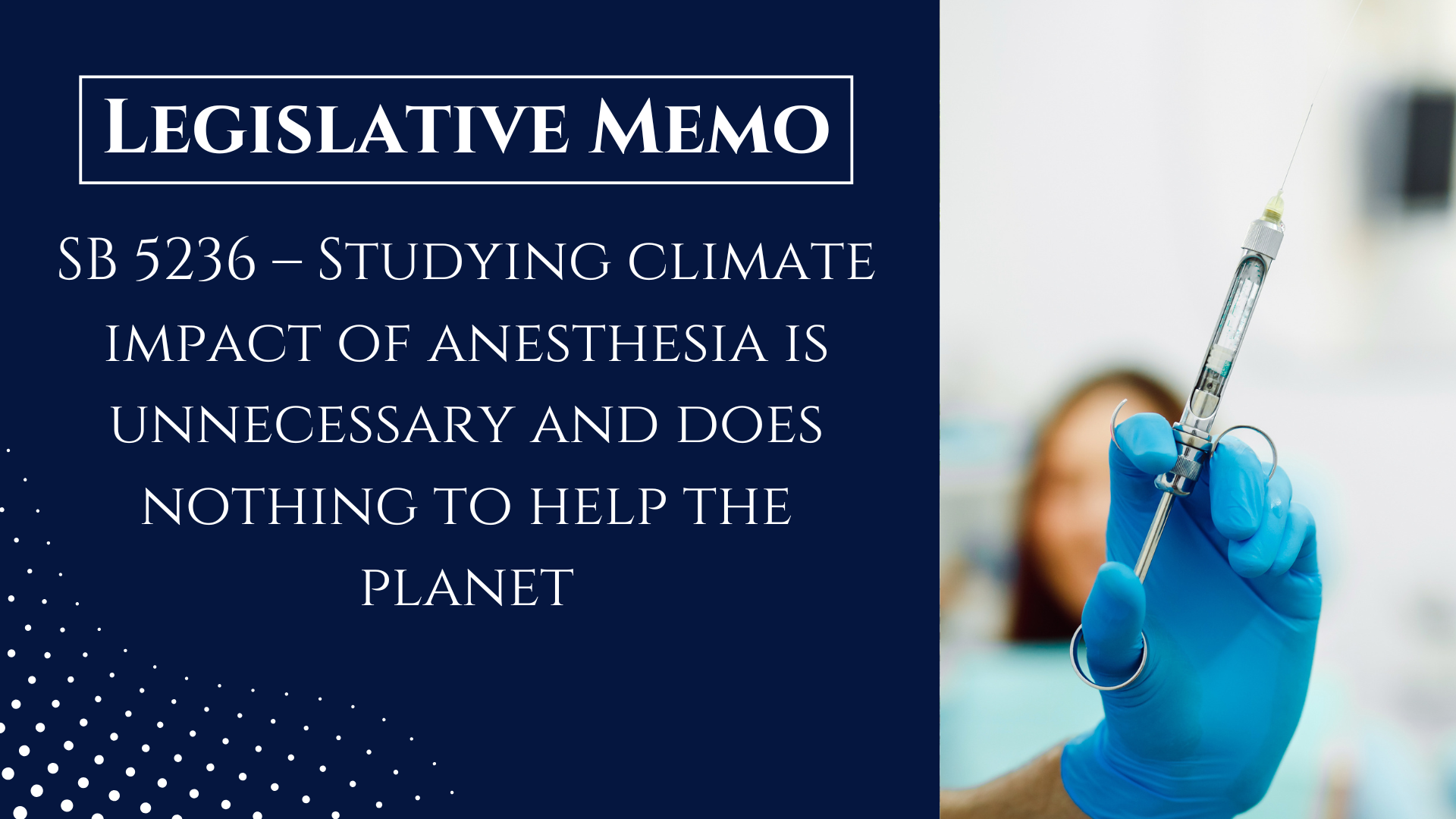Key Findings
- The legislature is considering spending about $840,000 for a report to study the impact of anesthetic gases on climate change.
- The impact of anesthetic gases like nitrous oxide, however, is incredibly small, amounting to about five one-thousandths of a percent of the state’s annual greenhouse gas emissions.
- For the cost of the report, Washington could invest in projects that reduce the equivalent amount of greenhouse gas emissions for nearly 17 years.
- Hospitals and others could also voluntarily opt-in to the Climate Commitment Act, which would provide them more flexibility in addressing the emissions from anesthesia and would not require a costly and restrictive new law.
Introduction
Washington state legislators are looking to spend about $840,000 to create a study on the impact of anesthesia gases like nitrous oxide on climate change and propose potential regulations in the future. However, for that same amount of money, they could invest in projects that reduce the equivalent of nearly 17 years of those gases in Washington.
The legislature appears to be ready to choose the study over real-world results, adopting Senate Bill 5236 which would require the Department of Ecology to study the impact of anesthesia and produce a report in 2027 with recommendations for regulation. The legislation would waste time and money addressing an extremely tiny amount of emissions. Indeed, no additional regulation is necessary and existing laws could address these emissions if hospitals voluntarily participated in the Climate Commitment Act (CCA) as allowed by the law.
The bill is another example of duplicative climate legislation that could be addressed using existing laws and without needlessly spending additional taxpayer dollars.
READ THE FULL LEGISLATIVE MEMO HERE



